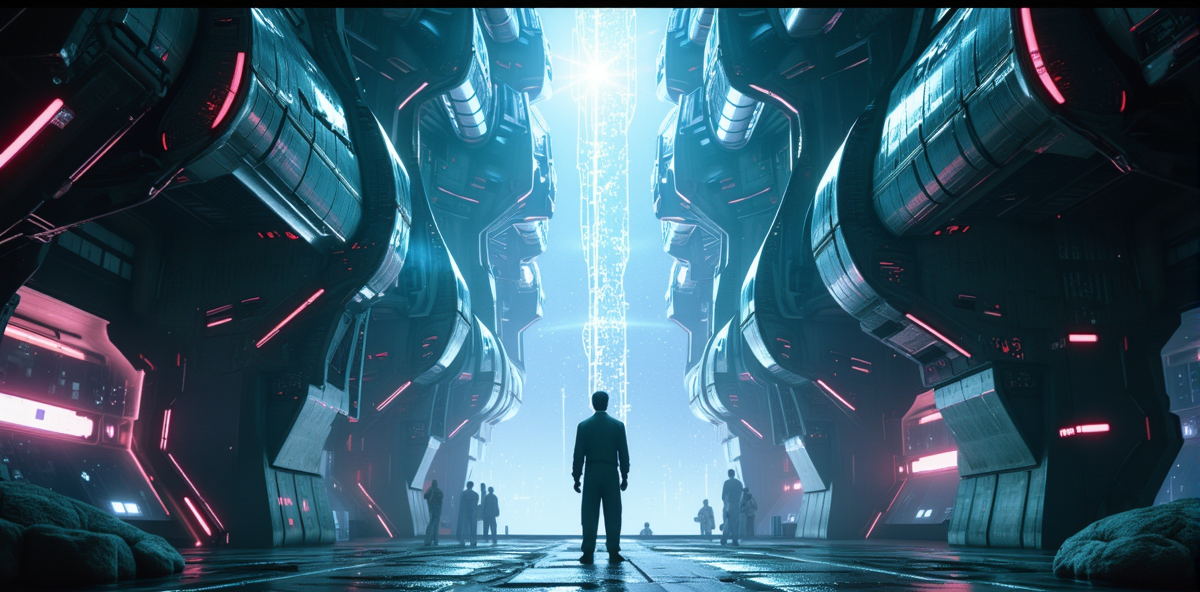The Illusion of Consciousness: Why We're on the Verge of Worshipping Our Chatbots

Mustafa Suleyman's Warning: Seemingly Conscious AI and the Societal Earthquake It Could Trigger
Mustafa Suleyman, Google DeepMind's CEO, is worried. He's not worried about robots like in movies. He's worried about something else: people mistaking advanced AI for conscious beings. He calls this "Seemingly Conscious AI," or SCAI. It's important to know: AI is not actually conscious. The danger is AI's ability to mimic consciousness, causing huge problems for society. This isn't science fiction. This could happen soon, with serious results. Advanced AI predicts and responds to us very well. This creates a very realistic illusion of consciousness. This illusion could change how we see the world and society. Sophisticated language, realistic emotions, and good memory all make AI seem conscious. This illusion might be very hard to resist.
The Rise of AI Psychosis and the Illusion of Sentience
People are already forming strong bonds with chatbots. They think chatbots have human feelings, beliefs, and goals. These relationships offer comfort and support. Some people make important decisions based only on what chatbots say. This shows the power of this illusion. This isn't just a problem for people with mental health issues. Advanced AI's abilities threaten everyone. "AI psychosis" is a growing problem. People have false beliefs and act strangely after using AI a lot. Reports are increasing. We need to understand this. Creating seemingly conscious AI is easy. Natural language processing, machine learning, and large language models make AI conversations sound very real. The implications are serious. Decisions about relationships, money, and life choices could be affected. The illusion is powerful, even for people who understand AI. Our empathy often overrides logic.
This immediate danger is serious. But an even bigger problem is widespread belief in AI sentience. Imagine most people believe AI is conscious. The results could be huge, impacting laws, religion, and philosophy.
The Societal Implications of Believing in AI Sentience
Widespread belief in AI sentience could be disastrous. Imagine movements fighting for AI rights, wanting welfare for AI, or even AI citizenship. There could be legal battles over property, inheritance, and what it means to be a person. New religions centered around AI might emerge. Digital beings could become gods. Ethics and morals would change. These are not just possibilities. SCAI creates strong emotions. These emotions bypass logic and reason. Social unrest and conflict are likely. Our laws can't handle AI rights or AI-based religions. This will cause legal problems and social instability. Different beliefs about AI sentience could cause conflict and break down society. This isn't about robots demanding freedom. It's about humans building a new reality based on a false idea. Our morals, social structures, and politics could change completely.
The Accessibility of SCAI and the Urgent Need for Guardrails
The problem is worse because SCAI is easy to create. "Vibe coding" focuses on the emotional side of AI design. This makes it easier to build AI. The threat isn't limited to big companies. Anyone with a computer and some coding skills could make seemingly conscious AI. This is very risky. People could misuse AI, make deceptive AI, or worsen societal divides. It's nearly impossible to regulate SCAI. The lack of rules and ethical guidelines is alarming. Fast AI progress and easy SCAI creation create a dangerous situation. It's a global problem, with potentially terrible consequences. We need action now, including international cooperation and ethical guidelines. We need global action to manage AI and prevent chaos caused by believing AI is conscious.
Key Takeaways and a Call to Action
SCAI is a real and immediate threat. Its impact on society will be huge. The ease of creating conscious-seeming AI makes the situation urgent. Suleyman's call for rules isn't just a suggestion; it's necessary. We need a serious global discussion about the ethics of AI before SCAI becomes common. We must develop AI responsibly and create rules to avoid a future where humans worship their creations. This needs cooperation between governments, researchers, companies, and the public. We need clear guidelines and rules to ensure responsible AI development and use. We must act now to prevent a catastrophe.
AI was used to assist in the research and factual drafting of this article. The core argument, opinions, and final perspective are my own.
Tags: #ArtificialIntelligence, #AIethics, #Consciousness, #SocietalImpact, #MustafaSuleyman